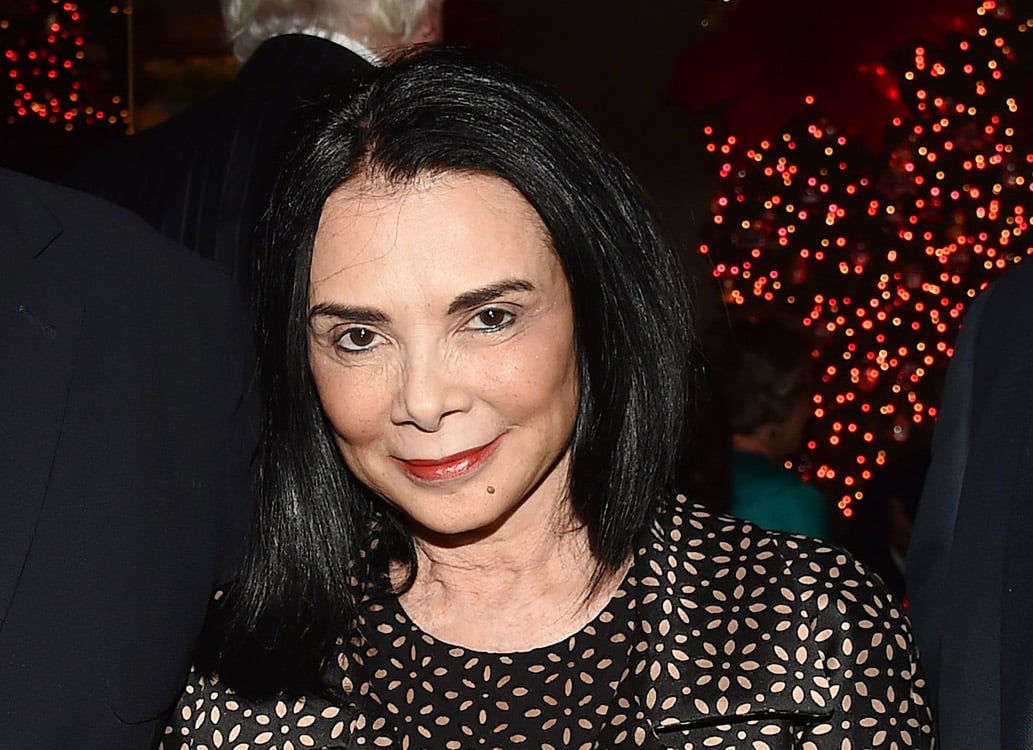
New York art dealer Mary Boone pleaded guilty in September to filing false tax returns. Now, as she awaits sentencing—which could be up to six years in jail—her lawyers have filed a massive memo calling for leniency from the judge, citing a history of childhood trauma that has left Boone to battle mental illness and addiction.
Boone wears a “veil of success and stability,” wrote her lawyers, Robert S. Fink and Michael Sardar, calling her a “self-made woman who has had to work harder, act tougher, and do everything better in order to succeed in the male-dominated art world.” They are asking Judge Alvin K. Hellerstein to consider a sentence of home confinement, probation, and up to 1,000 hours of community service.
Both prosecutors and Boone’s attorneys declined to comment on the new memo.
Boone’s father died when she was only three, leaving her mother unprepared to support herself and her children, the memo says. An impoverished childhood left a lasting imprint on the young art dealer, who swore that she would never allow herself be in a position of helplessness again. But despite achieving success as one of New York’s most prominent art dealers, Boone remained irrationally convinced that her financial ruin lay just around the corner.
It was paranoia, not greed, Boone’s lawyers argue, that led her to falsify her 2011 tax returns, which claimed a false business loss as well as to count some $1.6 million in personal expenses as business deductions. Boone was quick to plead guilty to the two offenses, even before being charged by a grand jury. She has since paid all of her back taxes, plus interest and penalties—a total of $6.98 million.
The memo includes 237 pages of exhibits, including a forensic psychological evaluation from Sanford L. Drob, a Brooklyn-based forensic psychologist (as well as a philosopher and painter), attesting to Boone’s mental illness.
Mary Boone and her son Max Werner at the 2015 Guild Hall Summer Gala in East Hampton. Photo ©Patrick McMullan.
“Psychological factors, including Ms. Boone’s extreme fragility, an exaggerated fear of loss, poor reality testing, distorted thinking, and distortions in her perception of reality have chronically impaired Ms. Boone’s judgment and likely contributed significantly to her offense conduct,” wrote Drob, claiming that prison time would “render her vulnerable to increased depression, anxiety, [and] suicidal ideation.”
Boone’s longtime therapist Jeanette Friedman also weighed in, writing that “I believe that Mary is at a very high risk of harming herself,” and at times seems delusional. “I do not foresee a functional transition to incarceration as helping her mental state. I believe she will find adjustment potentially intolerable, due to her ongoing rigidity, paranoia, and difficulty accepting reality.”
And there is more at risk than Boone’s mental health, her lawyers contend. “If Mary is sent to prison, the galleries will be forced to close,” reads the memo. “There is simply no one else with the knowledge, skill, expertise, and relationships who could take her place.”
“This is not hyperbole; she accounts for the vast majority of the sales, with her team playing a more operations-oriented role,” added Boone’s son, Max Werner. The gallery has 11 employees and represents 29 artists.
Werner’s statement was one of more than 100 letters written to to the judge on the embattled art dealer’s behalf. Many are by prominent art world figures such as Pulitzer Prize-winning art critic Jerry Saltz; art collectors Beth Rudin DeWoody and Peter Brant; Performa director RoseLee Goldberg; curator Neville Wakefield; dealers Barbara Gladstone, Lucy Mitchell-Innes, Jack Shainman, and Jeffrey Deitch; and artists Ai Weiwei, Laurie Simmons, Ross Bleckner, and Julian Schnabel.
Peter Saul, Mary Boone, Eric Fischl, Chuck Close, Ross Bleckner, Peter Schuyff, and Ralph Gibson at a Bleckner opening at Mary Boone Gallery in 2014. Photo ©Patrick McMullan.
The letters spoke of Boone’s groundbreaking work promoting emerging artists—particularly women—and of her trustworthiness. Boone was also praised by gallery employees past and present, as well as a number of her fellow members of Alcoholics Anonymous, who touted her 20 years of sobriety and her support helping others battle addiction.
Also voicing their support for Boone with letters were her housekeeper, her doorman, the leaders at Madison Avenue Presbyterian Church, where Boone has been a member since 1987, and her driver of 16 years, who credits Boone with finding the doctors who diagnosed his son’s rare illness and provided the bone marrow transplant that saved his life.
Altogether, the memo paints a picture of Boone as someone who made a terrible mistake and is now trying to rectify it and move forward. “Ms. Boone comes before this court genuinely remorseful for her criminal offense and humbled by the shame she has brought upon herself, her family, and her gallery,” wrote Fink and Sardar. “Her conduct, while inexcusable, is totally inconsistent with her character and the way she has otherwise lived her life.”